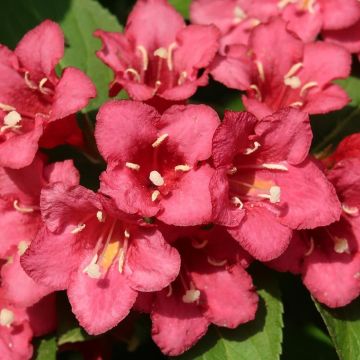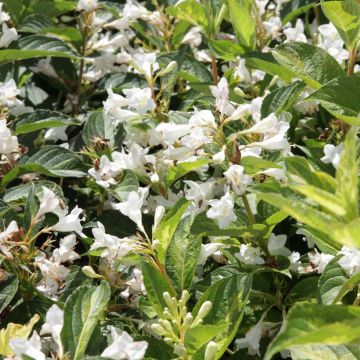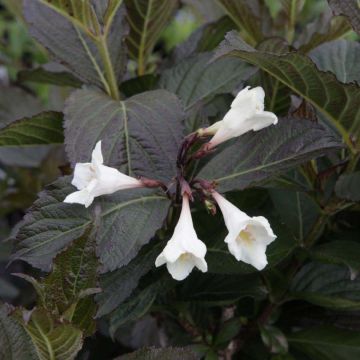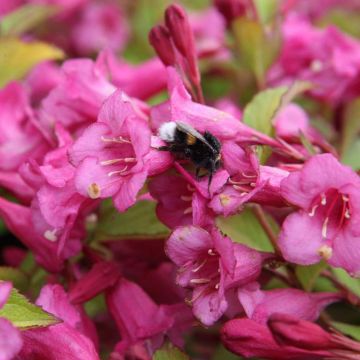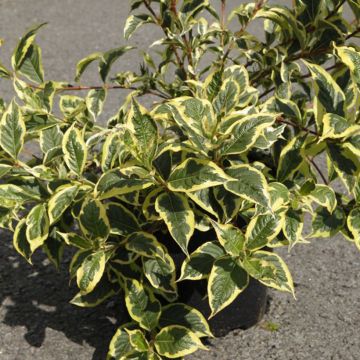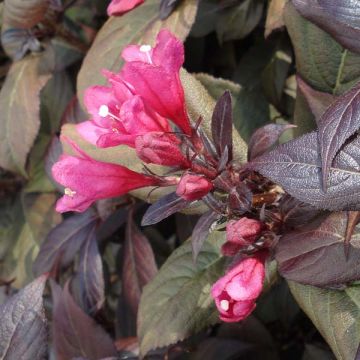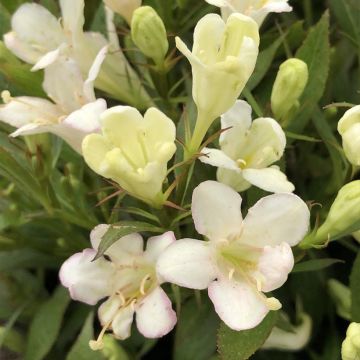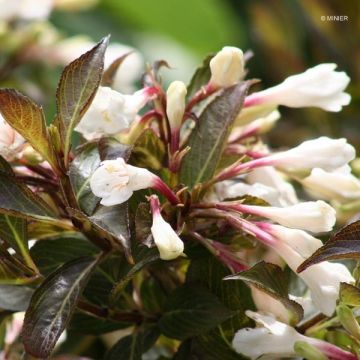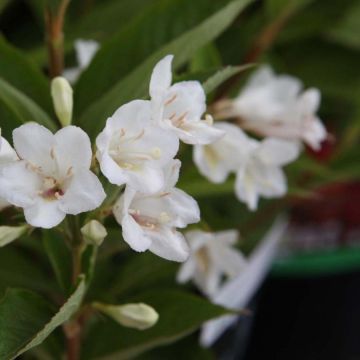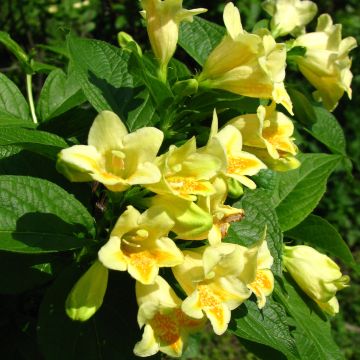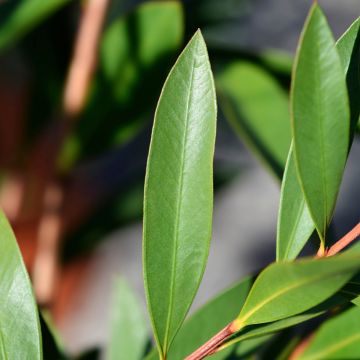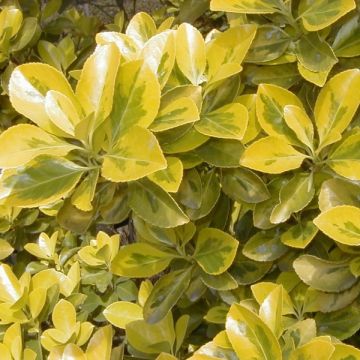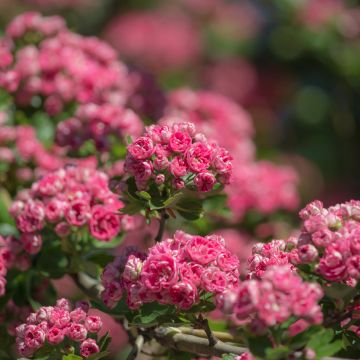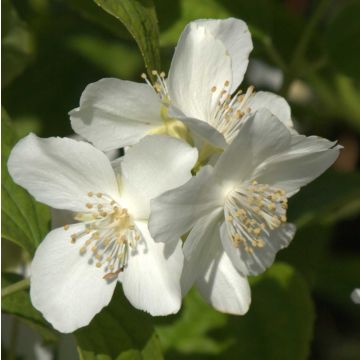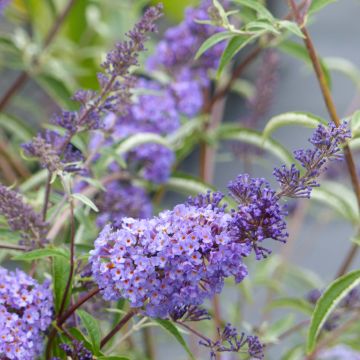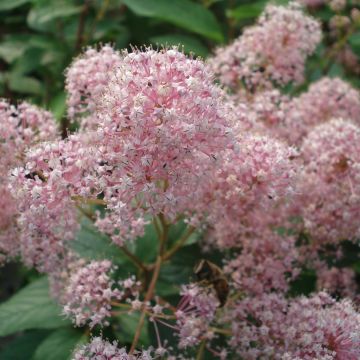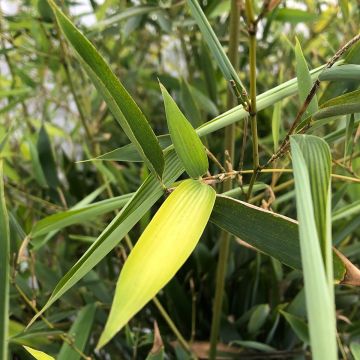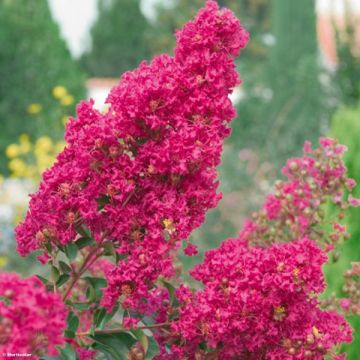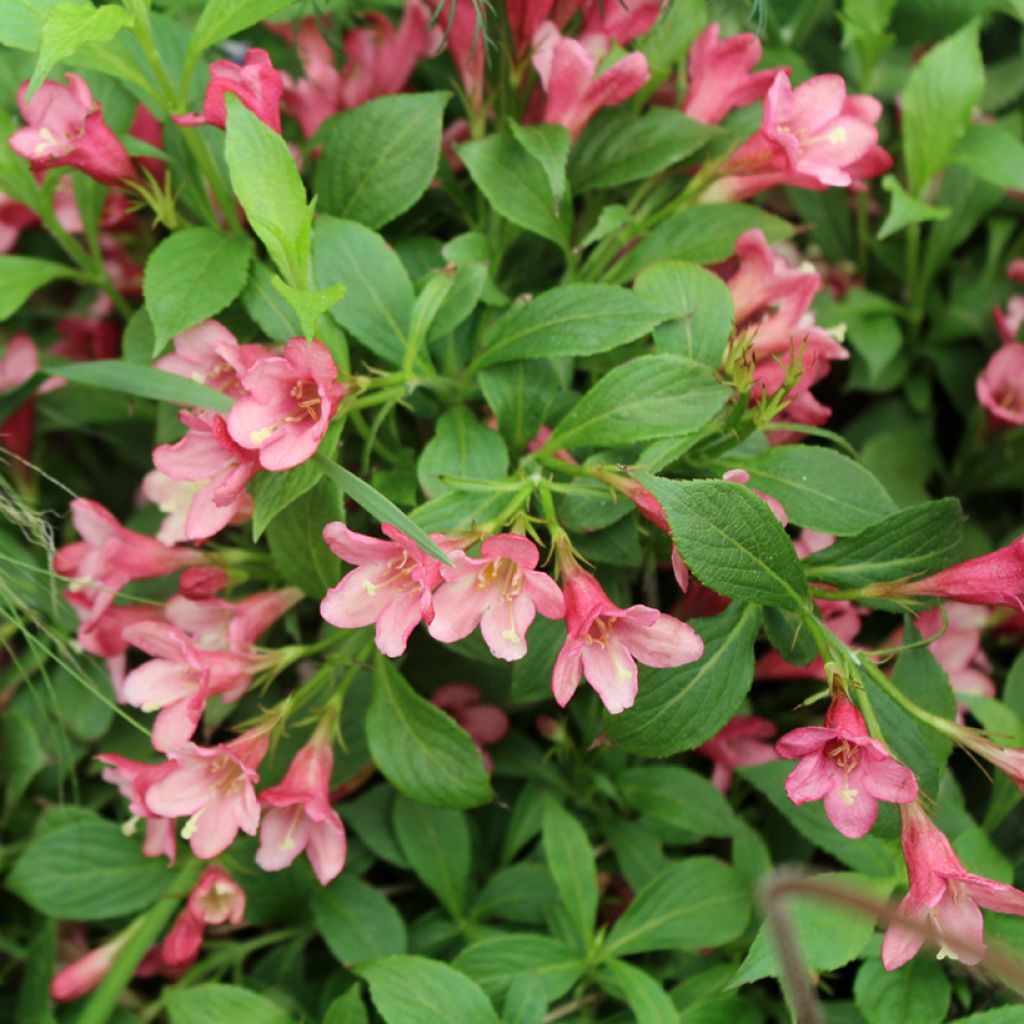

Weigela Florida Picobella Rosa


Weigela Florida Picobella Rosa
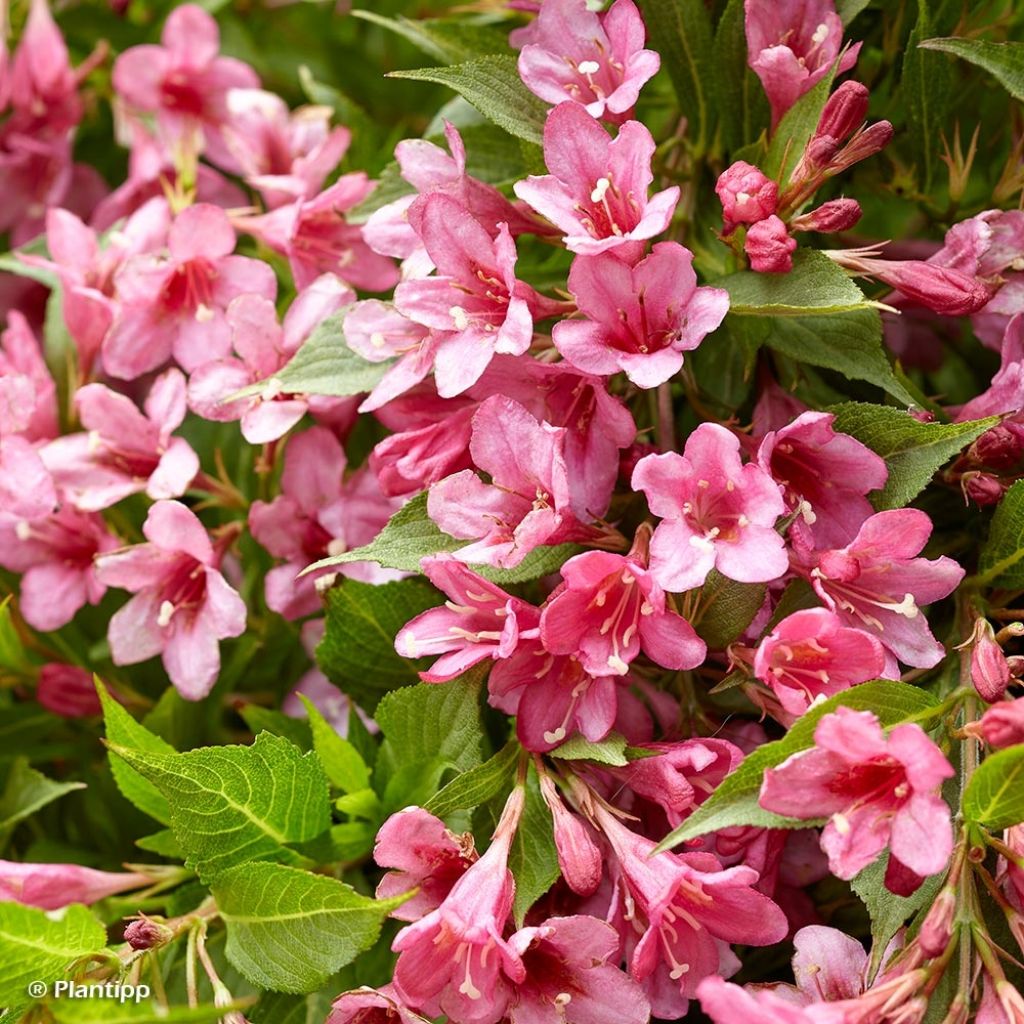

Weigela Florida Picobella Rosa
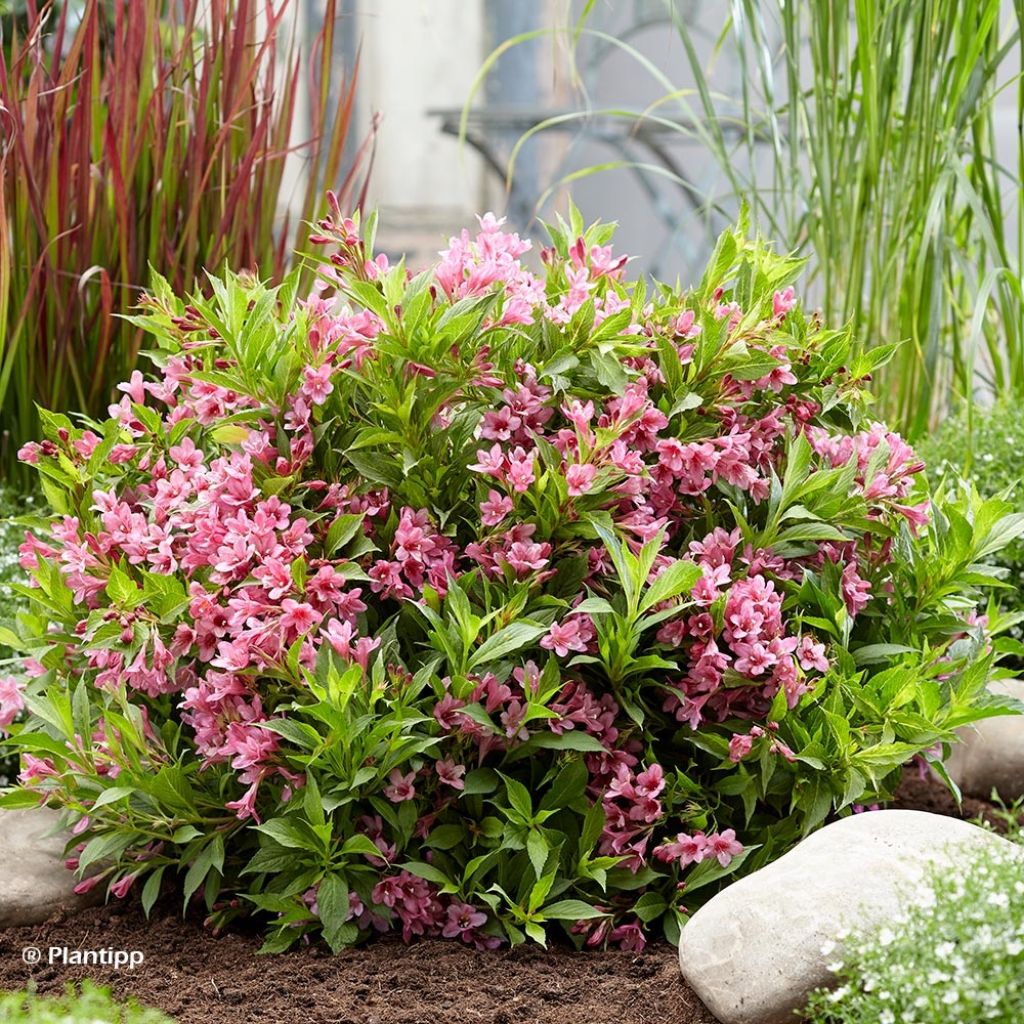

Weigela Florida Picobella Rosa
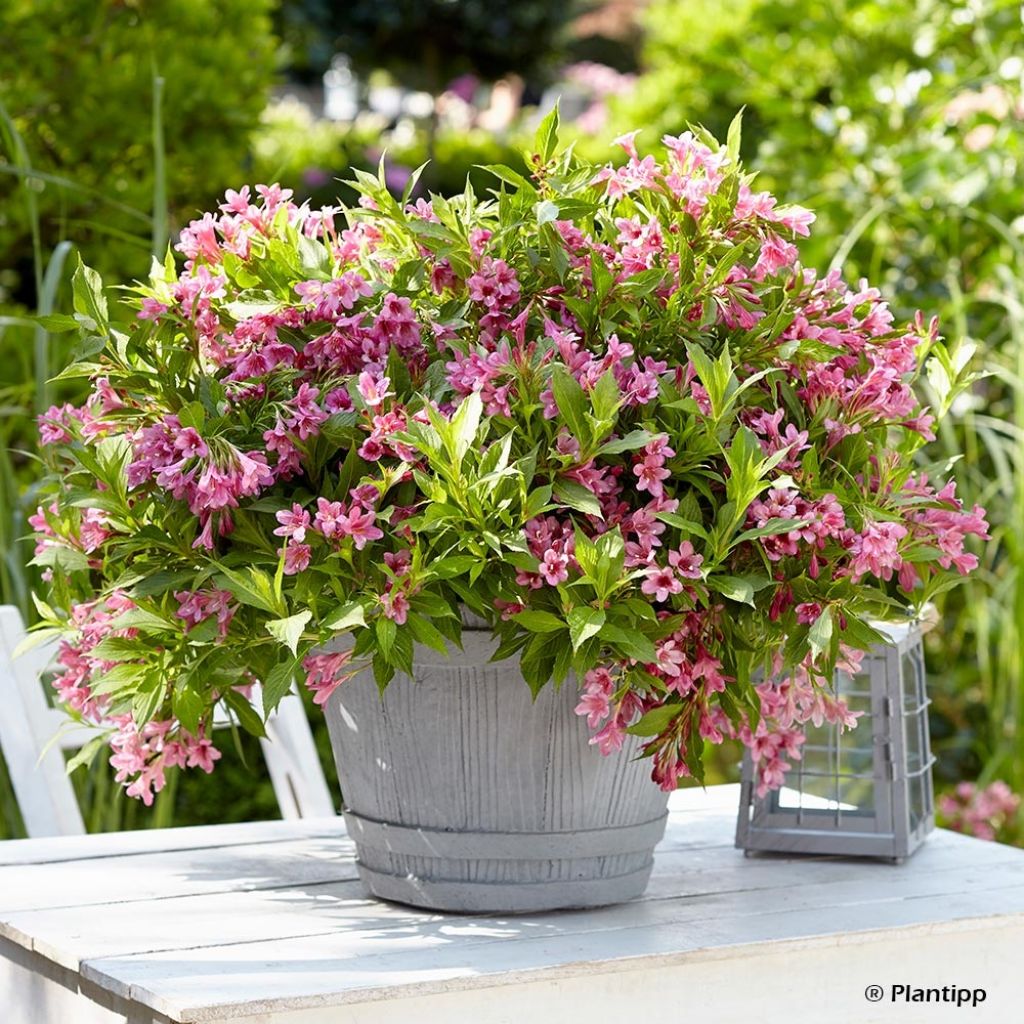

Weigela Florida Picobella Rosa
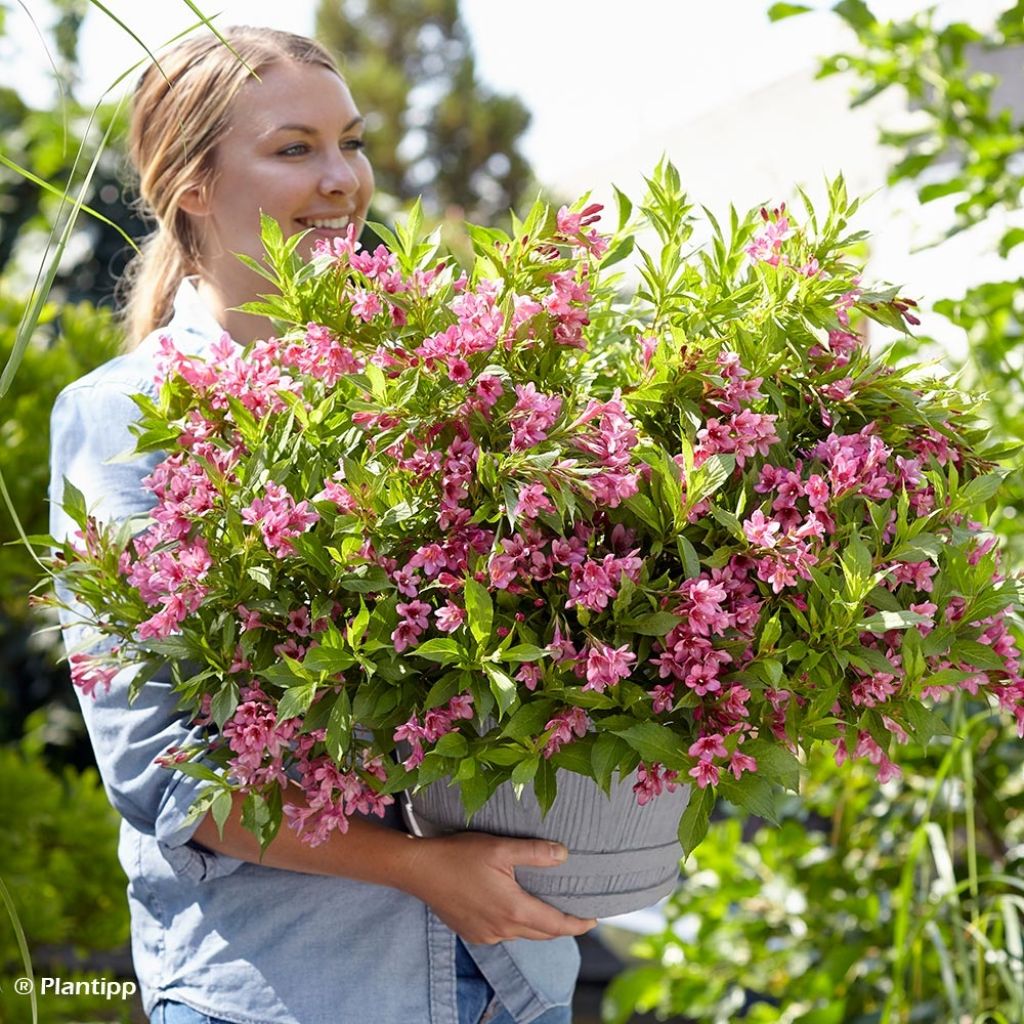

Weigela Florida Picobella Rosa
Weigela Florida Picobella Rosa
Weigela x florida Picobella Rosa®
Weigela, Florida Weigela, Old-fashioned Weigela
This item cannot be shipped to the selected country
Delivery charge from €5.90
More information
Schedule delivery date,
and select date in basket
This plant carries a 24 months recovery warranty
More information
We guarantee the quality of our plants for a full growing cycle, and will replace at our expense any plant that fails to recover under normal climatic and planting conditions.
From €5.90 for pickup delivery and €6.90 for home delivery
Express home delivery from €8.90.
Does this plant fit my garden?
Set up your Plantfit profile →
Description
The Weigela 'Picobella Rosa' is a new variety of dwarf weigelia with particularly long and abundant, bright, luminous pink flowering. This small bush with a rounded and compact habit is perfect for small spaces and pot cultivation. Its fine, glossy, medium-green foliage wonderfully highlights its pretty flowering in the form of small bells from May to October. Weigelas are easy to grow in ordinary, cool, well-drained soil. Compact varieties combine well with a wide range of small bushes and perennials in cottage or romantic flowerbeds, low flowering hedges, or large borders.
Derived among others from western Florida, the Weigela 'Picobella Rosa' is native to northeastern China, Korea and Japan. Weigela are Asian plants and belong to the honeysuckle family. This new cultivar was selected by the horticulturist Bert Verhouef in his nursery in Hazerswoude, Holland. The 'Picobella Rosa' has an exceptionally slow, naturally compact growth, forming a rounded and bushy dome. It reaches about 40 cm (15.7 in) in height with a 60 cm (23.6 in) span at maturity. This variety has a deciduous, medium-green foliage consisting of fine and lanceolate, slightly undulate, satin leaves which turn yellow-orange in autumn before falling. Its funnel-shaped, sustained, and bright pink flowers are abundant from May to October. They are carried in corymbs at the end of the branches from the previous year. This flowering is very melliferous and nectariferous.
Hardy to well below -20°C, the Weigelia 'Picobella Rosa' likes being in full sun or semi-shade, in cool but well-drained soil. Its cheerful prolonged flowering will brighten any setting and will, combined for example with purple Berberis, form a stunning border along a path or lawn. In a flowerbed, mix it for example with Galega, blood-red or variegated dogwood, ornamental brambles, a Physocarpus, snowberries or even a Buddleia alternifolia Unique, also a dwarf shrub with blue-mauve flowers. In the background, the very dark foliage of holly or yew will form a contrasting winter scene. This weigelia can also be pot-grown on a terrace, or as a standalone to draw the eye in small gardens.
Report an error about the product description
Weigela Florida Picobella Rosa in pictures
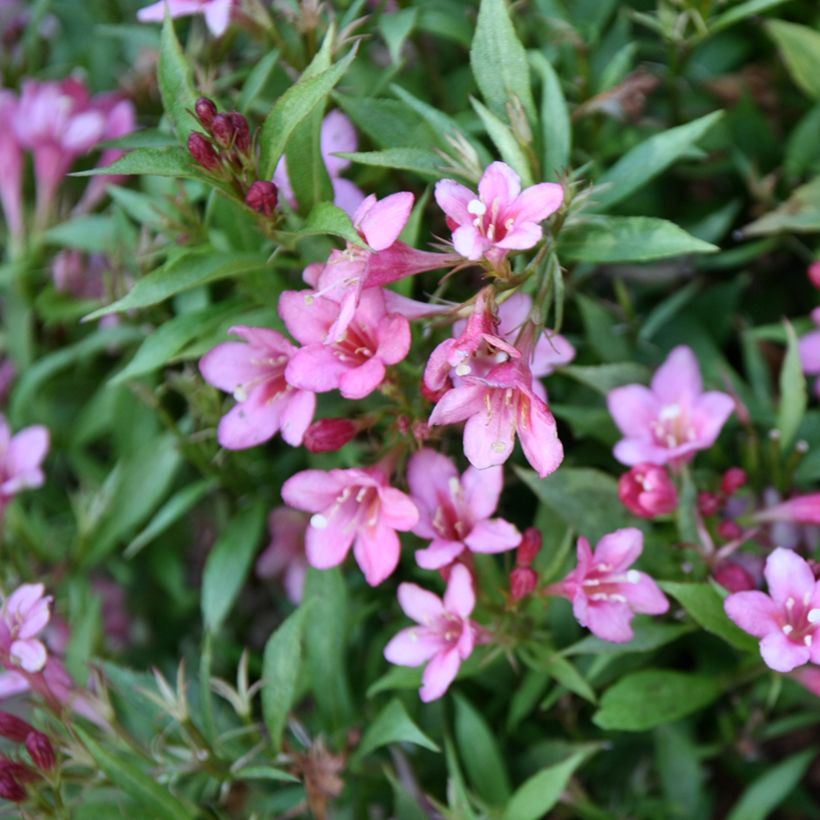

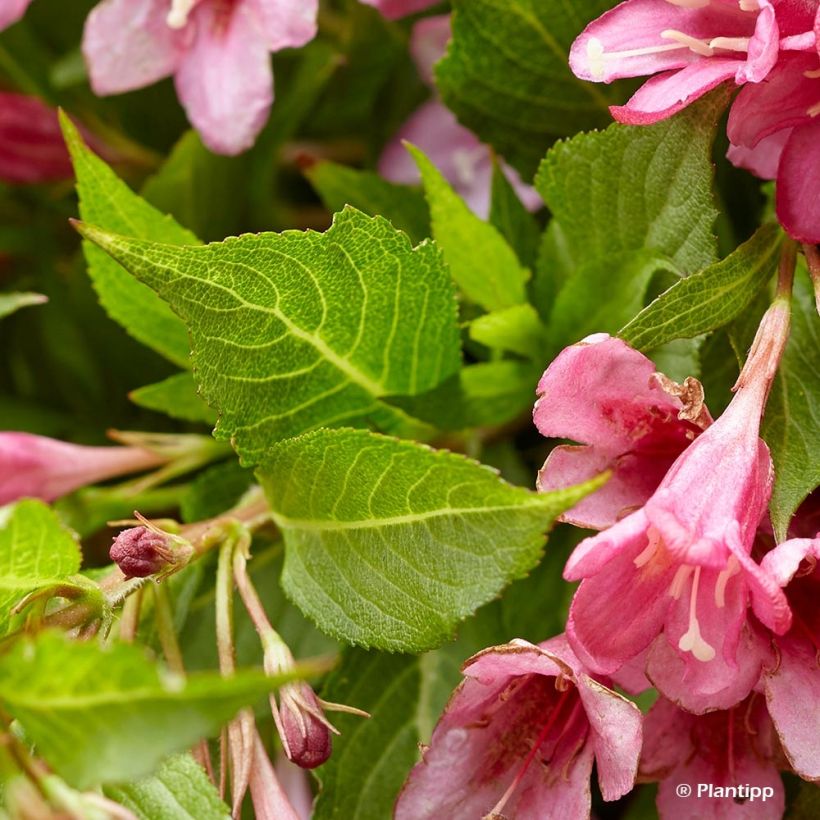

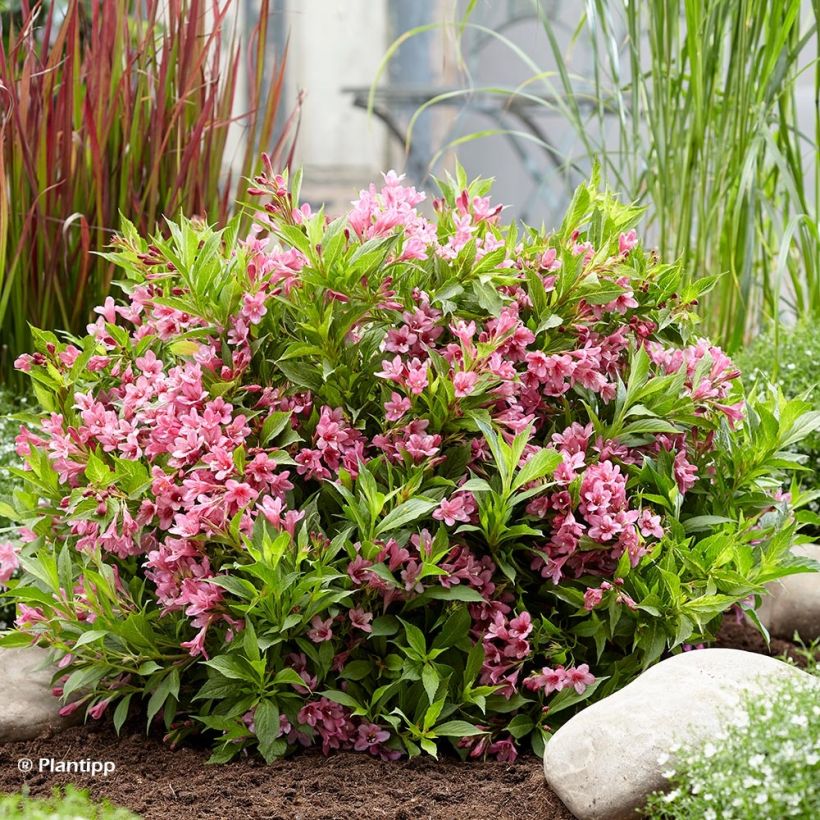

Plant habit
Flowering
Foliage
Botanical data
Weigela
x florida
Picobella Rosa®
Caprifoliaceae
Weigela, Florida Weigela, Old-fashioned Weigela
Cultivar or hybrid
Other Weigela
Planting and care
Hardy down to -25°C, the Weigela 'Picobella Rosa' thrives in sun or semi-shade. Plant it in ordinary cool, well-drained, slightly acidic, or neutral to slightly alkaline soil, from October to March (outside of frost periods). To maintain a compact habit and promote floribundus, prune the branches that have carried the spring flowers by 2/3 just after flowering.
Planting period
Intended location
Care
-
, onOrder confirmed
Reply from on Promesse de fleurs
Hedge shrubs
Haven't found what you were looking for?
Hardiness is the lowest winter temperature a plant can endure without suffering serious damage or even dying. However, hardiness is affected by location (a sheltered area, such as a patio), protection (winter cover) and soil type (hardiness is improved by well-drained soil).

Photo Sharing Terms & Conditions
In order to encourage gardeners to interact and share their experiences, Promesse de fleurs offers various media enabling content to be uploaded onto its Site - in particular via the ‘Photo sharing’ module.
The User agrees to refrain from:
- Posting any content that is illegal, prejudicial, insulting, racist, inciteful to hatred, revisionist, contrary to public decency, that infringes on privacy or on the privacy rights of third parties, in particular the publicity rights of persons and goods, intellectual property rights, or the right to privacy.
- Submitting content on behalf of a third party;
- Impersonate the identity of a third party and/or publish any personal information about a third party;
In general, the User undertakes to refrain from any unethical behaviour.
All Content (in particular text, comments, files, images, photos, videos, creative works, etc.), which may be subject to property or intellectual property rights, image or other private rights, shall remain the property of the User, subject to the limited rights granted by the terms of the licence granted by Promesse de fleurs as stated below. Users are at liberty to publish or not to publish such Content on the Site, notably via the ‘Photo Sharing’ facility, and accept that this Content shall be made public and freely accessible, notably on the Internet.
Users further acknowledge, undertake to have ,and guarantee that they hold all necessary rights and permissions to publish such material on the Site, in particular with regard to the legislation in force pertaining to any privacy, property, intellectual property, image, or contractual rights, or rights of any other nature. By publishing such Content on the Site, Users acknowledge accepting full liability as publishers of the Content within the meaning of the law, and grant Promesse de fleurs, free of charge, an inclusive, worldwide licence for the said Content for the entire duration of its publication, including all reproduction, representation, up/downloading, displaying, performing, transmission, and storage rights.
Users also grant permission for their name to be linked to the Content and accept that this link may not always be made available.
By engaging in posting material, Users consent to their Content becoming automatically accessible on the Internet, in particular on other sites and/or blogs and/or web pages of the Promesse de fleurs site, including in particular social pages and the Promesse de fleurs catalogue.
Users may secure the removal of entrusted content free of charge by issuing a simple request via our contact form.
The flowering period indicated on our website applies to countries and regions located in USDA zone 8 (France, the United Kingdom, Ireland, the Netherlands, etc.)
It will vary according to where you live:
- In zones 9 to 10 (Italy, Spain, Greece, etc.), flowering will occur about 2 to 4 weeks earlier.
- In zones 6 to 7 (Germany, Poland, Slovenia, and lower mountainous regions), flowering will be delayed by 2 to 3 weeks.
- In zone 5 (Central Europe, Scandinavia), blooming will be delayed by 3 to 5 weeks.
In temperate climates, pruning of spring-flowering shrubs (forsythia, spireas, etc.) should be done just after flowering.
Pruning of summer-flowering shrubs (Indian Lilac, Perovskia, etc.) can be done in winter or spring.
In cold regions as well as with frost-sensitive plants, avoid pruning too early when severe frosts may still occur.
The planting period indicated on our website applies to countries and regions located in USDA zone 8 (France, United Kingdom, Ireland, Netherlands).
It will vary according to where you live:
- In Mediterranean zones (Marseille, Madrid, Milan, etc.), autumn and winter are the best planting periods.
- In continental zones (Strasbourg, Munich, Vienna, etc.), delay planting by 2 to 3 weeks in spring and bring it forward by 2 to 4 weeks in autumn.
- In mountainous regions (the Alps, Pyrenees, Carpathians, etc.), it is best to plant in late spring (May-June) or late summer (August-September).
The harvesting period indicated on our website applies to countries and regions in USDA zone 8 (France, England, Ireland, the Netherlands).
In colder areas (Scandinavia, Poland, Austria...) fruit and vegetable harvests are likely to be delayed by 3-4 weeks.
In warmer areas (Italy, Spain, Greece, etc.), harvesting will probably take place earlier, depending on weather conditions.
The sowing periods indicated on our website apply to countries and regions within USDA Zone 8 (France, UK, Ireland, Netherlands).
In colder areas (Scandinavia, Poland, Austria...), delay any outdoor sowing by 3-4 weeks, or sow under glass.
In warmer climes (Italy, Spain, Greece, etc.), bring outdoor sowing forward by a few weeks.

































